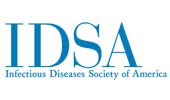
Systemic Inequities
Challenge
IDSA recognizes the opportunity to make concerted efforts to ensure that business practices and priorities reflect the populations we serve.
Actions
Our Roadmap and Strategies document outlines our comprehensive and long-term plans to ensure Inclusion, Diversity, Access and Equity are fully integrated throughout our Society. The Roadmap and Strategies include a case statement, guiding principles, and a number of action items to guide our journey. In addition, IDSA has:
- Published two Journal of Infectious Diseases Issue Supplements to highlight our research and commitment to workforce development, including promoting equitable compensation practices and addressing barriers that limit the advancement of unrepresented populations at all career stages. These supplements focus on enhancing the future of infectious diseases and nurturing the next generation of clinicians, scientists, and leaders.
- Implemented recruitment strategies to ensure staffing processes yield a diverse talent pool.
- Implemented several governance changes to help ensure our volunteer leadership reflects our membership and ensure transparency in the nominations process for the Board of Directors, committee chairs, and vice-chairs.
Outcomes
IDSA’s actions to address health disparities and structural inequities that impact the communities and populations that we serve include:
- A Statement in Response to the Death of George Floyd,
- Organizing a 21-Day Racial Equity Habit Building Challenge and a panel discussion to discuss systemic inequities in the field of Infectious Diseases.
- Creation of an Allyship guide which features resources to drive awareness and action.
- Creating an online collection of resources on health disparities and culturally competent care.
- A set of policy briefs to highlight the striking socioeconomic and healthcare inequities that disproportionately impact African Americans, LatinX, and Native American populations and other historically underserved communities during the pandemic. These offer recommendations for clinicians, health organizations and policymakers to address persistent disparities.